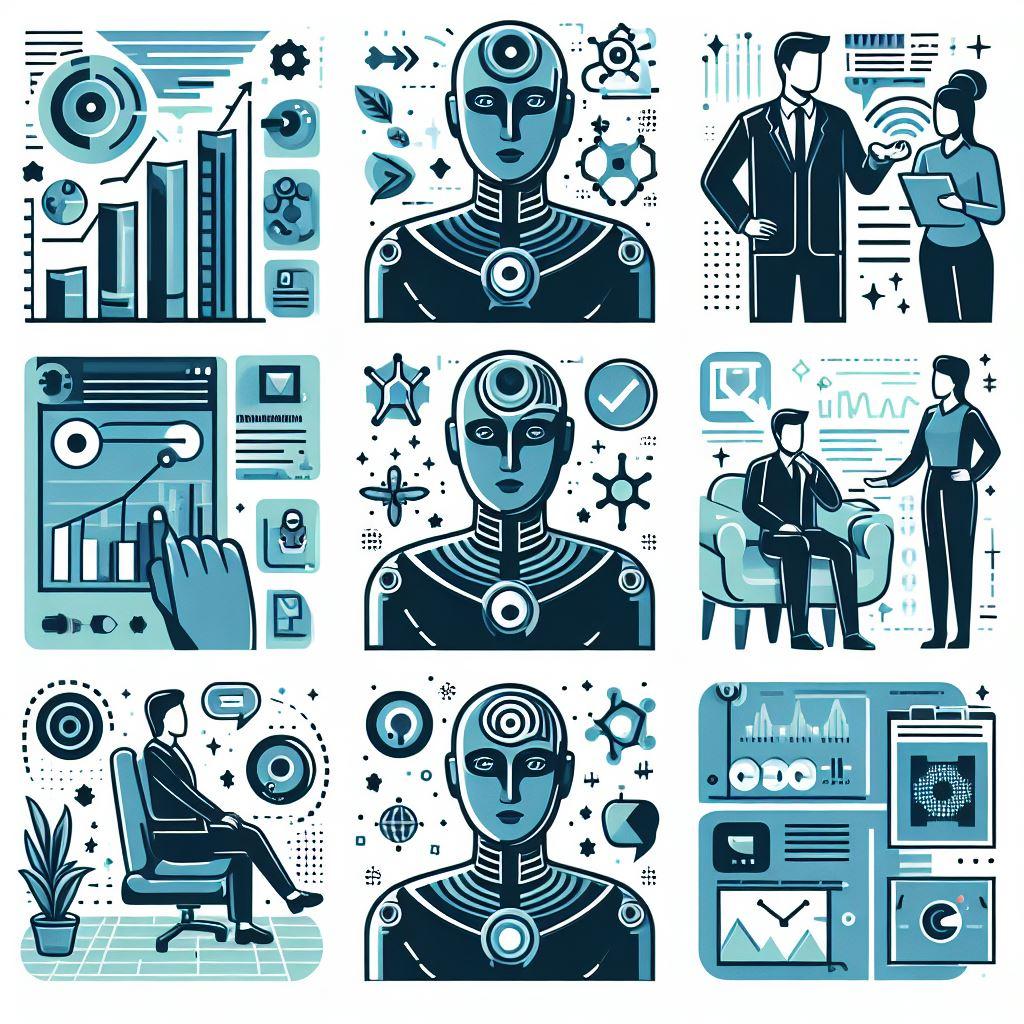In the rapidly evolving landscape of technology and business, artificial intelligence (AI) has emerged as a powerful tool for facilitating change management. As organizations worldwide strive to remain competitive and adaptive, the integration of AI in change management strategies offers a cutting-edge approach to navigating organizational transformations. This blog post explores how AI can be leveraged to enhance change management processes, offering insights and practical strategies for leaders and change practitioners.
Understanding AI in Change Management
AI refers to the simulation of human intelligence in machines that are programmed to think and learn. In the context of change management, AI can be used to analyze large volumes of data, predict outcomes, personalize communication, and automate repetitive tasks, among other functions. By harnessing AI, organizations can achieve more efficient, effective, and personalized change management initiatives.
Key Strategies for Using AI in Change Management
Data-Driven Decision Making
AI excels at processing and analyzing vast amounts of data quickly, providing insights that might take humans much longer to uncover. In change management, this capability can be used to:
- AI tools can assess employee feedback and sentiments in real time, helping leaders understand resistance points and the support needed.
- By analyzing past change initiatives, AI can help predict the success rates of plans, enabling more informed decision-making.
Personalized Communication
Change is often met with resistance, primarily due to fear of the unknown or misunderstanding of the change’s impact. AI can tailor communication to individual employees based on their history, role, and previous engagement with change initiatives, ensuring that:
- Messages are relevant and resonate on a personal level.
- Employees receive information in the format and channel they prefer.
Automating Administrative Tasks
Change management involves a myriad of administrative tasks that can be time-consuming. AI can automate these processes, such as:
- Scheduling meetings and training sessions.
- Sending out updates and reminders.
- Collecting feedback and monitoring engagement.
This automation allows change managers to focus on more strategic aspects of the change process.
Training and Development
AI-powered platforms can provide personalized learning experiences for employees, adapting to their pace and learning style. This is particularly useful in change initiatives, where new skills or knowledge may be required. AI can:
- Recommend tailored learning paths.
- Offer virtual coaching and support.
- Assess progress and provide feedback.
Continuous Improvement
AI’s ability to analyze performance and feedback continuously can offer ongoing insights into the effectiveness of change initiatives. By identifying what’s working and what’s not, AI enables organizations to:
- Make real-time adjustments to strategies.
- Foster a culture of continuous improvement.
- Enhance the overall success of change management efforts.

Challenges and Considerations
While AI offers numerous benefits, it’s not without its challenges. Privacy concerns, data security, and the risk of over-reliance on technology are critical considerations. Moreover, the human aspect of change cannot be overlooked. AI should be viewed as a tool to support, not replace, the human elements of empathy, understanding, and leadership essential for successful change management.
Conclusion
As we look to the future, integrating AI into change management represents a significant leap forward in how organizations approach change. By leveraging AI’s capabilities for data analysis, personalized communication, task automation, and continuous learning, change leaders can navigate organizational transformations more effectively and efficiently. However, it’s crucial to balance technological advancements with the irreplaceable value of human insight and connection. In doing so, organizations can harness the full potential of AI to drive successful change.
In embracing AI, change management professionals can not only streamline processes but also foster a culture of innovation and adaptability, positioning their organizations for success in the dynamic landscape of the future.


